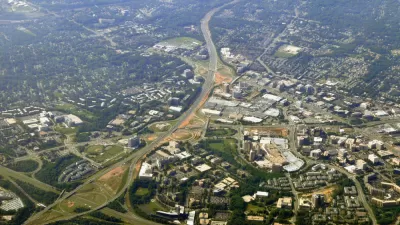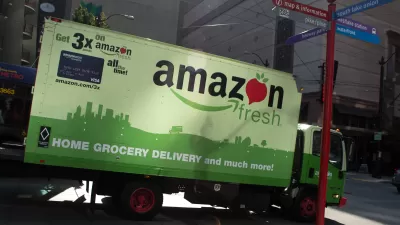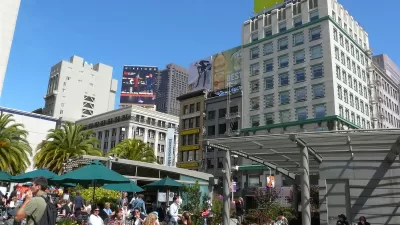Articles that claim online commerce have surpassed sales at brick and mortar stores are wrong, according to an article on City Observatory.

Online sales, or e-commerce, has grown rapidly in the past few years, but widely published assertions that they represent half of all retail sales are simply not true, according to a story by Joe Cortright. Cortright cites stories in Next City and Fortune that claim internet sales have surpassed those from brick and mortar stores, Cortright cites data from the Census Bureau that directly contradicts those stories, "E-commerce retail sales in the second quarter of 2016 were $97 billion, equal to about 8.1 percent of total retail sales in the U.S." This is not a difference that could be explained away as the natural variance between two studies. It's a difference in kind.
In tracking down the source of these statistics, Cortright came across an online study of frequent, avid online shoppers that specifically sought out heavy users of online shopping to investigate their perspectives.
The fallout of this growing misunderstanding of physical retail can have large implications for planners. Retailers are the crossroads of our cities and towns. They make our cities worth walking through. If they're being replaced, we need to know. Trends in retail become trends for cities, but exaggerating that process is counterproductive.
FULL STORY: Lies, damn lies, and (on-line shopping) statistics.

Maui's Vacation Rental Debate Turns Ugly
Verbal attacks, misinformation campaigns and fistfights plague a high-stakes debate to convert thousands of vacation rentals into long-term housing.

Planetizen Federal Action Tracker
A weekly monitor of how Trump’s orders and actions are impacting planners and planning in America.

In Urban Planning, AI Prompting Could be the New Design Thinking
Creativity has long been key to great urban design. What if we see AI as our new creative partner?

Florida Seniors Face Rising Homelessness Risk
High housing costs are pushing more seniors, many of them on a fixed income, into homelessness.

Massachusetts Budget Helps Close MBTA Budget Gap
The budget signed by Gov. Maura Healey includes $470 million in MBTA funding for the next fiscal year.

Milwaukee Launches Vision Zero Plan
Seven years after the city signed its Complete Streets Policy, the city is doubling down on its efforts to eliminate traffic deaths.
Urban Design for Planners 1: Software Tools
This six-course series explores essential urban design concepts using open source software and equips planners with the tools they need to participate fully in the urban design process.
Planning for Universal Design
Learn the tools for implementing Universal Design in planning regulations.
Gallatin County Department of Planning & Community Development
Heyer Gruel & Associates PA
JM Goldson LLC
City of Camden Redevelopment Agency
City of Astoria
Transportation Research & Education Center (TREC) at Portland State University
Jefferson Parish Government
Camden Redevelopment Agency
City of Claremont





























